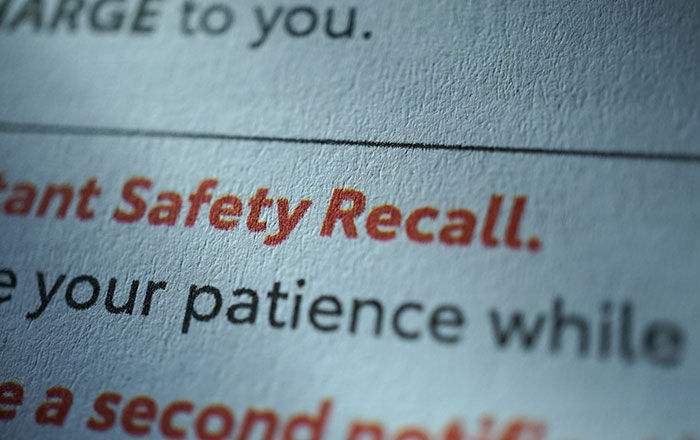
The majority of employees in South Carolina are covered by workers’ compensation insurance, but there are some exceptions. It’s important to know whether you’re covered so that you understand your rights in the event of a workplace accident.
“Workers’ compensation” is a common term, so you might assume that every worker in South Carolina is covered by workers’ compensation insurance – but that’s simply not the case.
According to the South Carolina Workers’ Compensation Commission, “every South Carolina employer and employee, with certain notable exceptions, is presumed to be covered by the State’s Workers’ Compensation Act.”
Here’s a list of the “notable exceptions” who are not covered by workers’ compensation insurance in the Palmetto State:
- Those who work for a business with less than four employees – The South Carolina Workers’ Compensation Commission states that “as a general rule, businesses that regularly employ four or more employees within South Carolina are required to maintain workers’ compensation coverage.
- Those who work for a business with less than $3,000 in annual payroll –Any employer paying out less than $3,000 to its employees annually is exempt from having to purchase workers’ compensation insurance.
- Railroad workers – Railroad employees aren’t covered under the South Carolina Workers’ Compensation Act. However, injured railroad workers are covered under the Federal Employers’ Liability Act (FELA).
- Agricultural workers – Agricultural employees are not covered by workers’ compensation insurance in South Carolina.
- Textile Hall Corporation workers – These workers are not covered under the South Carolina Workers’ Compensation Act.
- Federal employees –Like railroad workers, these employees are instead covered under FELA.
- Most real estate agents – Licensed real estate agents who work for brokers on a 100% commission basis or as independent contractors are not covered under the South Carolina Workers’ Compensation Act.
- Casual employees – This category typically includes employees who do work on an occasional, ad hoc basis.
- Owner-operator drivers – Drivers who own or lease their own trucks are not covered under the South Carolina Workers’ Compensation Act. However, some owner-operators carry workers compensation insurance on themselves.
- Volunteers – Unpaid volunteers are considered gratuitous workers, not employees, and are not covered under workers’ compensation insurance.
- Independent contractors – This category can become tricky. If an independent contractor is performing tasks that are vital to the operation of a business, or if they don’t pass the “right to control” test, they may have legal basis to claim they should be covered under the business’ workers’ compensation insurance.
The right to control test is used to determine whether an independent contractor is actually being treated like an employee instead of a contractor.
Here are the four elements of the “right to control” test:
- Direct evidence of the right or exercise of control – Does the alleged employer have the right to control the performance of the work and the manner in which it’s done? If so, that could constitute an employer/employee relationship rather than a contractor/client relationship.
- Furnishing of equipment – Does the contractor provide their own equipment, or does the business provide it as they would for an employee?
- Method of payment– Is the contractor paid through invoices, or are they on the payroll like a regular employee would be?
- Right to fire– Does the business have the right to fire the contractor, in the same way they could fire an employee?
Those who aren’t covered by workers’ compensation insurance are often covered in other ways. For instance, injured railroad workers and federal employees are covered under the Federal Employers’ Liability Act (FELA), as noted above.
South Carolina real estate agents might be covered in a number of ways, depending on how their accident occurred. For example, if they got in a car accident while on the way to show a house, they could file a claim with their own car insurance or the other driver’s car insurance. If they were injured while inside a client’s house, they could likely turn to the homeowner’s property insurance.
It’s best to understand your coverage so that you know your rights if and when a workplace accident occurs. If there is any confusion about whether you’re covered by workers’ compensation insurance, you are highly advised to speak with an experienced South Carolina personal injury lawyer who can listen to the details of your case and advise you on your next steps.
If you are covered under workers’ compensation insurance, you will need to report your injury within 90 days and file a claim within two years. It’s best to act quickly, as you and your attorney will need time to gather evidence and build the strongest case possible. Waiting a long time to report the injury can also give the other side’s insurance company the opportunity to downplay the severity of your workplace injury or claim the injury happened elsewhere.
Even if your employer carries workers’ compensation insurance, certain conditions aren’t covered unless they’re related to a specific workplace injury or illness. These conditions include stress, anxiety, depression, post-traumatic stress disorder (PTSD), stroke, heart attack, embolism, and aneurysm.
Have questions? Contact McWhirter, Bellinger & Associates
The lawyers at McWhirter, Bellinger & Associates would be happy to speak with you about your workplace injury.
Our attorneys are highly experienced in all types of personal injury cases, including:
- Workers’ compensation
- Auto accidents
- Motorcycle accidents
- Truck accidents
- Medical malpractice
- Slip-and-fall cases
- Nursing home abuse
- Boating accidents
- Dog bites
- Dangerous drugs & supplements
Our experienced South Carolina lawyers can tell you whether or not you have a valid personal injury claim, and what your case is worth. We’ve represented personal injury clients from across South Carolina for more than four decades and have earned a strong reputation for delivering great results. We have vast experience both at the negotiating table and inside the courtroom.
We always aim to settle outside of court, but we aren’t afraid to go head-to-head in front of a jury if the other side’s insurance company refuses to play fair. We know what our clients’ cases are worth, and we refuse to accept low-ball settlement offers. We also know the difficulties that personal injury victims face, and we’re dedicated to doing everything we can to make sure they receive fair compensation for their financial, physical, and emotional hardships.
Every personal injury case is different, but our clients often receive damages for the following:
- Medical expenses
- Rehabilitation costs
- Prescription drug costs
- Medical equipment costs
- Lost wages
- Loss of future income
- Directly related out-of-pocket expenses
- Physical pain & suffering
- Emotional pain & suffering
- Mental distress
- Disfigurement
- Disability
- Loss of enjoyment of life
- Funeral costs (in the event of a wrongful death case)
McWhirter, Bellinger & Associates has seven offices across the Midlands of South Carolina, and we’re always eager to help members of our communities achieve great outcomes in their personal injury cases. We offer free case evaluations, so don’t hesitate to contact us.
Give McWhirter, Bellinger & Associates a call today at 888-353-5513. It won’t cost you anything to see if we can help.®















